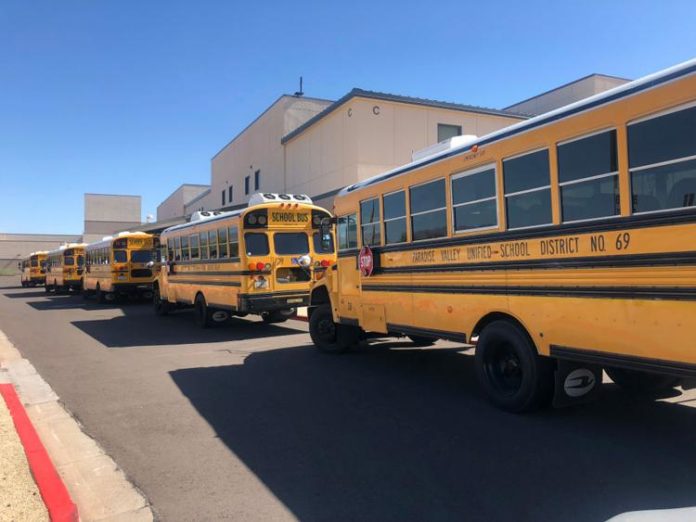The Arizona Legislature is weeks away from gaveling in for its Second Regular Session on Jan. 11, 2022, but some lawmakers are already filing bills that would rein in the powers of local school boards.
One bill, filed by Rep. Steve Kaiser, R-Phoenix, would empower lawmakers to request an investigation from the Arizona Attorney General’s Office into an alleged breach of state law.
Current Arizona law states that any lawmaker can file a request to “investigate any ordinance, regulation, order or other official action adopted or taken by the governing body.” Kaiser’s measure would add “school districts or charter schools” to the list of entities that can be investigated.
In addition, a school board found breaking a law could have some state funding withheld until legislative leaders confirm the situation is remedied under HB 2009.
State Sen. Michelle Ugenti-Rita, R-Scottsdale, pre-filed SB 1010 on Dec. 1. If enacted, it would allow for peaceful protests on school grounds after school hours.
It would also make school board elections a partisan affair.
“Notwithstanding any other law, all elections for school district governing board members in this state shall be conducted using a partisan primary election followed by a general election as otherwise prescribed by law and in the form substantially similar to that used for countywide or state elections,” her bill states.
Ugenti-Rita talked about the bill on Twitter.
“My bill is about transparency,” Ugenti-Rita said on Dec. 1. “Voters deserve to know the political ideology of candidates wishing to serve on school boards. Having candidates identify what party they’re registered as helps communicate their beliefs [and]values to voters. Why would any candidate be afraid of that?”
The legislation is filed days after the Scottsdale Police Department ended its investigation into Scottsdale Unified School District board member Jann-Michael Greenburg and allegations that he had kept an online dossier containing private information of activist parents who had been protesting COVID-19 mandates and other issues. SPD found nothing criminal in the online account.
Greenburg stepped down from his role as board president but did not resign from the board.
Lawmakers added a ban on controversial topics like Critical Race Theory into the current state budget. A judge ruled that grouping multiple different topics into a budgetary bill, referred to as logrolling, ran afoul of the state constitution and struck down the ban.
Cole Lauterbach | The Center Square
Republished with the permission of The Center Square














